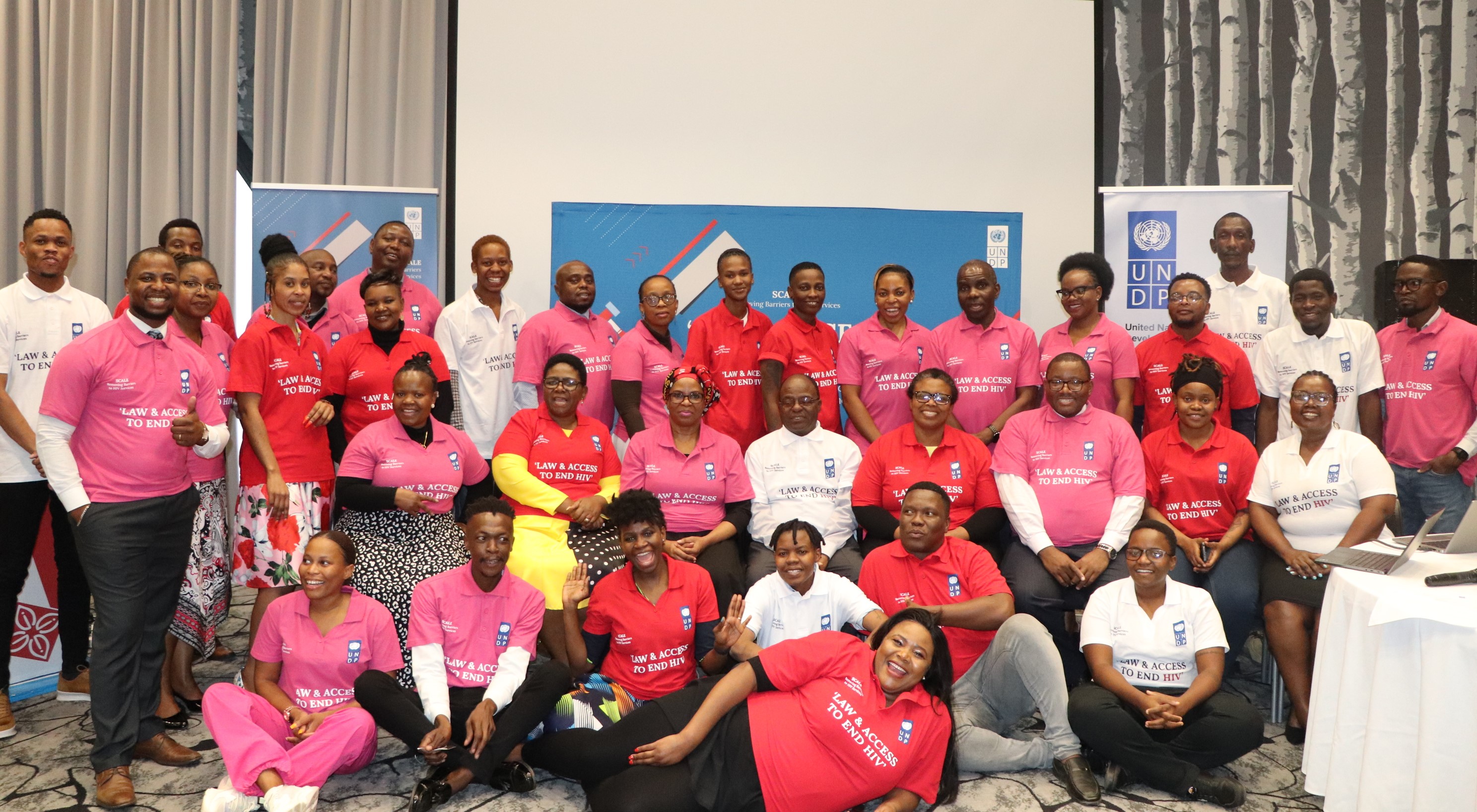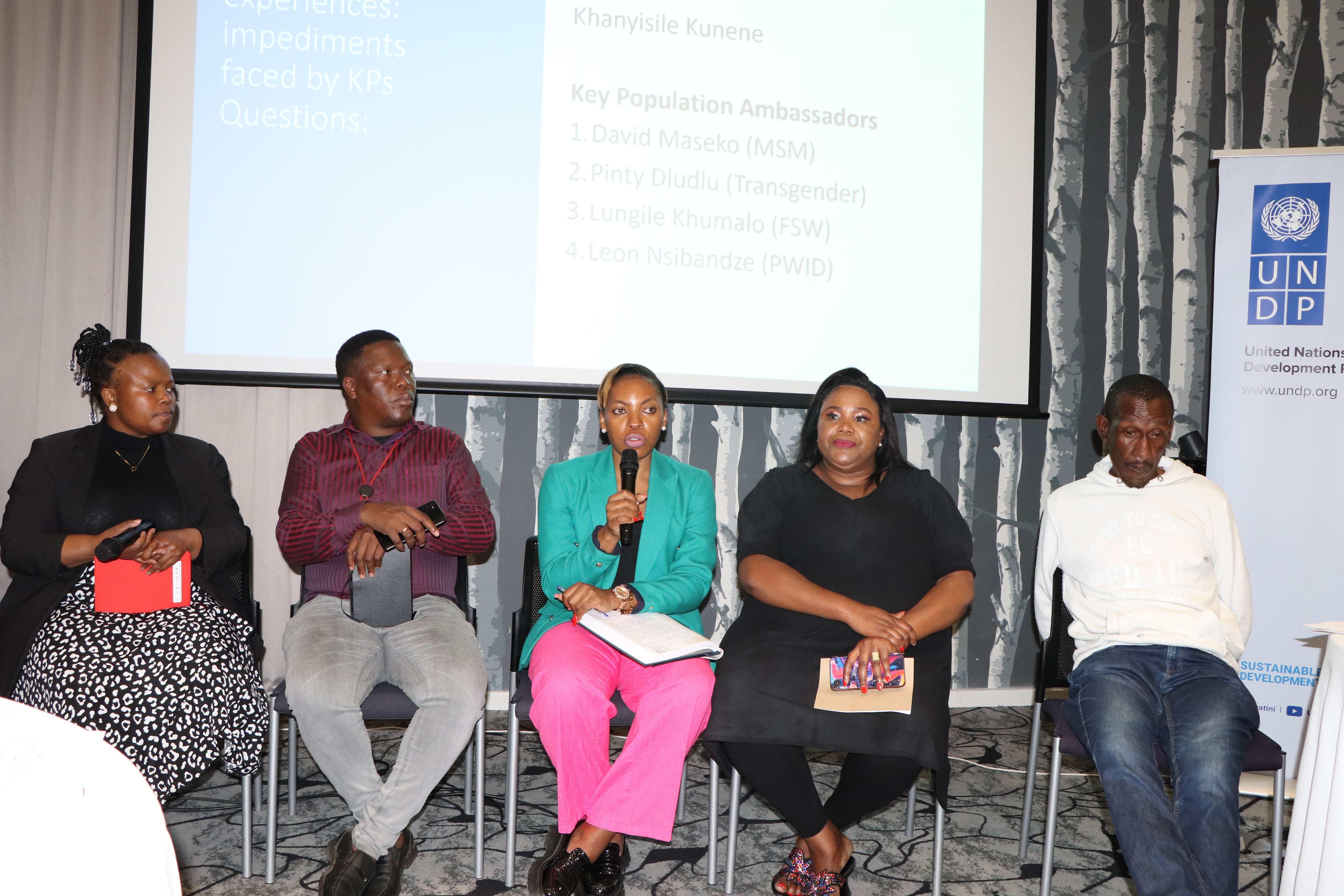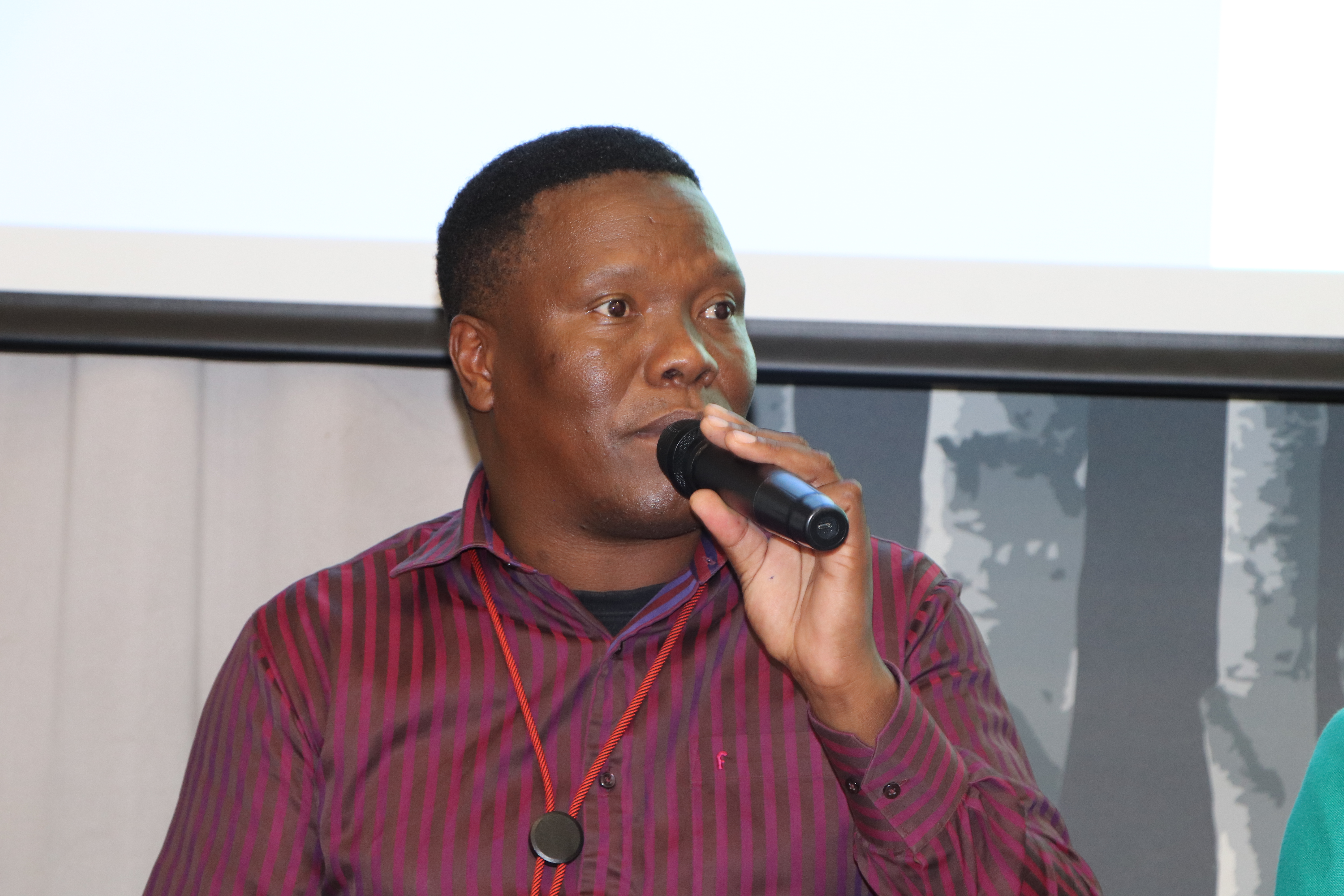Scaling up progress to remove HIV service barriers
August 17, 2023

Stakeholders in the HIV/AIDS response and key populations held a two-day dialogue on removing barriers to access HIV services.
Stakeholders in the HIV/AIDS response, together with key populations*, convened at the Hilton Garden Hotel today to discuss strategies for eliminating inequalities and ending AIDS by 2030. This dialogue occurred through the SCALE Initiative: Removing Barriers to HIV Services – a United Nations Development Programme (UNDP) and United States President's Emergency Plan for AIDS Relief (PEPFAR) partnership launched in November 2022.
The SCALE Initiative aims to advance the alignment of key-population-led efforts in countering discriminatory laws, policies and practices to accelerate progress towards meeting the targets of the 2021 Political Declaration on HIV and AIDS. Through the 2021 Political Declaration, heads of state and governments committed to the historic 10-10-10 HIV targets, calling for transformative action to reduce stigma and discrimination and remove punitive laws and policies impacting people living with HIV and other key populations.

Representatives of key populations organizations discussing challenges they face and proposed solutions.
Today's meeting comes at a crucial point in the HIV response – for Eswatini, Africa and the world. Though Eswatini has made significant progress in reaching epidemic control, no country in the world is on track to achieve the 10-10-10 targets by 2025. Key populations around the world continue to face stigma, discrimination and criminalization, often fuelled by hostile legal environments that impede access to life-saving HIV services.
UNDP and PEPFAR are committed to advancing an equitable global response to HIV that leaves no one behind. Today's meeting in Mbabane is the first in a series of dialogues across PEPFAR-supported countries for communities, governments and multilateral partners together with the affected populations to come together and discuss strategies for scaling up progress to remove these barriers to HIV services.
"Leaving No One Behind compels us to focus on discrimination and inequalities (often multiple and intersecting) that undermine the people's agency as holders of rights. Many of the barriers people face in accessing services, resources and equal opportunities are not simply accidents of fate or a lack of availability of resources but rather the result of discriminatory laws, policies and social practices that leave particular groups of people further and further behind," said UNDP Deputy Resident Representative David Omozuafoh.

David Maseko, the programme manager at Hope of Our Pride, addressing issues facing Men Who Sleep With Men (MSM).
"We need collaborated effort from all government ministries, development partners, commmunities and key populations in designing interventions that will that will respond to the needs of key populations," said Khanyisile Lukhele-Nyembe, the Key Population Officer at the Ministry of Health.
"As members of Men Who Have Sex With Men (MSM), we face the challenge of lack of inclusive messages in health facilities. Messages that encourage not having inclusive messages promoting access to health services target heterosexual couples and not MSM," said David Maseko,
*UNAIDS considers gay men and other men who have sex with men, sex workers, transgender people, people who inject drugs and prisoners and other incarcerated people as the five main key population groups that are particularly vulnerable to HIV and frequently lack adequate access to services.

 Locations
Locations



